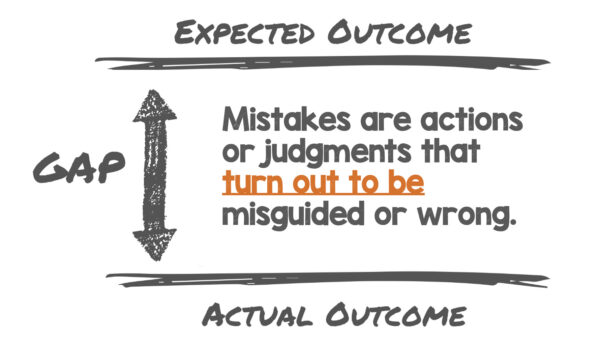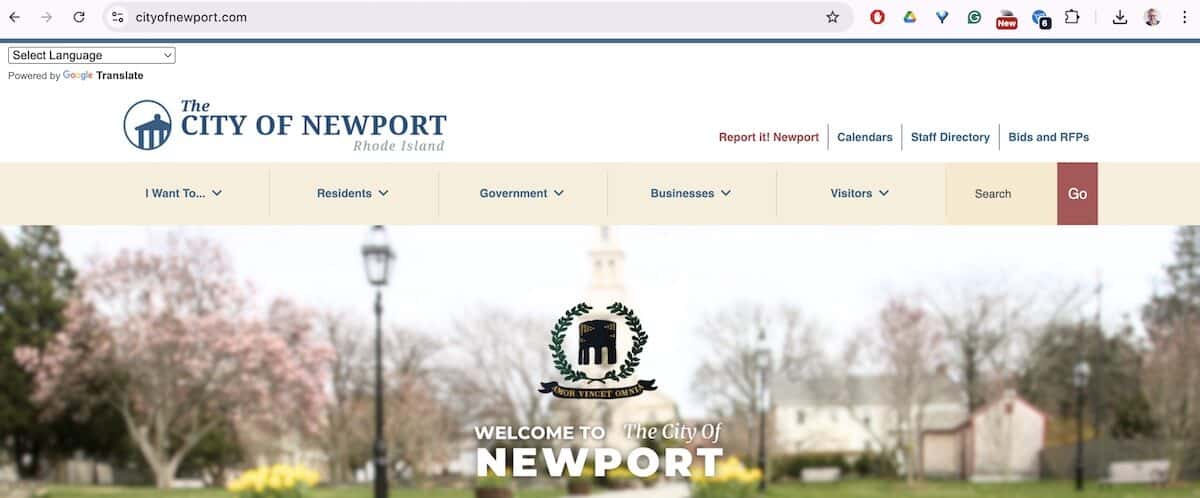How long would you expect it to take for the police to respond to a burglar alarm at your home?
Why do I bring this up? I had applied online for a burglar alarm permit in Newport, Kentucky.
A few hours later, I got this voicemail:
“Hi, this message is for Mark. This is the Newport Rhode Island Police Department. I'm just calling to let you know you submitted an alarm permit application. But I believe you need Newport Kentucky — I'm Newport Rhode Island. We'd love to help you out, but I don't think our response time would be very good…”
Yeah, it's about 13 hours, or 845 miles, away.
This was one of those mistakes that could make one cringe, or worse — but I chose to laugh instead. And that's easier when the other person responds with clarity, kindness, and even a touch of humor (and a bit of a New England accent). Actually, now that I think about it, I laughed involuntarily at the voicemail. But I chose to laugh at myself instead of beating myself up.
The Gap Between Expected and Actual
Former Toyota leaders often define a problem as the gap between what you expected and what actually happened. In my latest book, I define a mistake using that same framework.

In this case:
- Expected: My Google Search would find an application that would go to my local police department in Newport, KY.
- Actual: I found the City of Newport website for Rhode Island (www.cityofnewport.com)
Recognizing the gap made it easy to see the cause — I assumed that Google would provide localized search results based on my location. And I didn't look closely enough to verify the location before submitting.
I'm not going to blame Google. Or blame Newport, RI. Their website does say “Rhode Island” (and I won't blame them for not making the font larger).

It was my fault. I was in a rush, I guess. But it's not the end of the world.
A Harmless “Favorite Mistake”
In The Mistakes That Make Us (and in my related podcast), I define a “favorite mistake” as one you can learn from, tell a story about, and maybe even smile over later. If this wasn't a favorite, it is at the least a recent one.
Thankfully, no harm was done. I wasted a little of the Rhode Island department's time, and I apologize for that. But they took the time to help me course-correct — without any hint of annoyance. That's a good example of reacting kindly to mistakes. Not just being polite, but being helpful.
Why This Matters Beyond Newport
In many workplaces, even a small mistake can spark blame or embarrassment. But when the culture makes it safe to admit and fix errors — even laugh about them — people are more likely to speak up before small mistakes become big ones.
The city employee could have ignored my application or sent a curt rejection. Instead, they reached out with the information I needed and acknowledged the absurdity of the situation. That tone makes all the difference.
What I Learned
- Verify your “Newport” before hitting submit.
- Location-based search is helpful, but not infallible.
- The right reaction can turn an error into a positive interaction.
This mix-up won't change the course of my career, but it's another reminder that we all make mistakes — and that how we respond to them often matters more than the mistake itself.
It's easy to think, “I should have known better.” But small mistakes like this keep us humble, remind us to double-check assumptions, and give us a reason to smile.
Have you ever made a harmless mistake that made you laugh instead of cringe? Share it in the comments or email me — I might feature it in a future My Favorite Mistake post.
Please scroll down (or click) to post a comment. Connect with me on LinkedIn.
Let’s build a culture of continuous improvement and psychological safety—together. If you're a leader aiming for lasting change (not just more projects), I help organizations:
- Engage people at all levels in sustainable improvement
- Shift from fear of mistakes to learning from them
- Apply Lean thinking in practical, people-centered ways
Interested in coaching or a keynote talk? Let’s talk.
Join me for a Lean Healthcare Accelerator Trip to Japan! Learn More









